A Super Six of Rotary projects

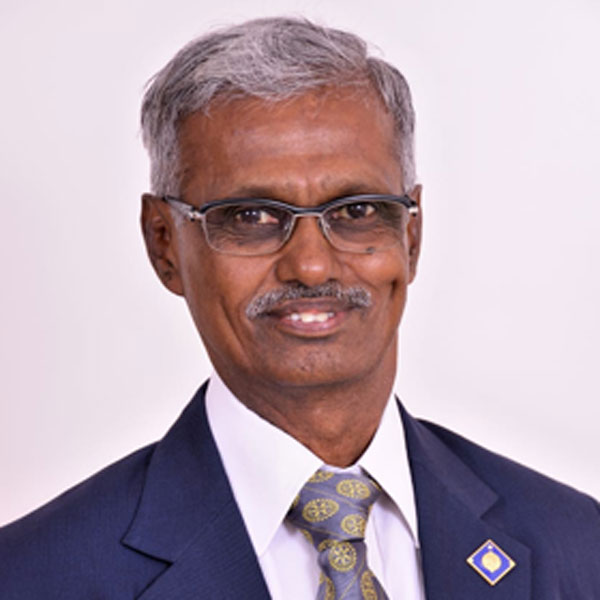
Chemist, RC Pudukkottai, RID 3000
All the 130 clubs spread across the eight revenue districts of RID 3000 are busy implementing Super 66, a signature project for doing six specific programmes in six months at club and regional levels. From August to February (excluding January), a slew of projects such as rainwater harvesting, one-day RYLA conferences, distributing health kits to lactating mothers, vocational training and awards, medical camps and installation of Rotary boards at public places are being taken up on first Saturdays by the clubs. “Around 1,000 Rotarians are involved in setting up RWH units at homes and public buildings. At the regional-level, assistant governors will lead clubs in doing projects like Miyawaki social forest, Happy Schools, launch of polio awareness buses (at least 10 vehicles), job fairs for Rotaractors, cardiac camps and road safety and traffic awareness week,” says Chokkalingam.
From April to September, the district clubs have done Covid-relief work worth ₹3 crore. This includes distribution of masks, sanitisers, PPE kits, grocery kits, food packets and equipment to hospitals. At a mega-level, the district is implementing 11 global grant projects worth ₹2.94 crore and has availed the Disaster Relief Fund (₹18.75 lakh) for Covid relief work.
Its discon, titled Koodal, held in January every year in Madurai may be postponed to April or May.
The DG is aiming for a nine per cent growth in membership which was 5,127 in July, and a 15 per cent growth in women members. His goal for TRF giving is $1 million. He says, “Rotarians should be role models for the public and this can be done by showcasing their projects to the larger world.”
Take Rotary to the public is his mantra
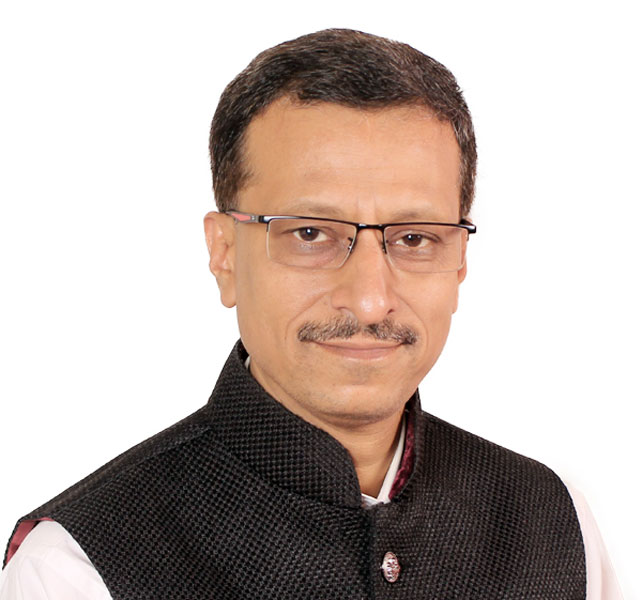
Photography equipment, RC Nagpur, RID 3030
Membership retention is his top priority given the uncertain times in the wake of Covid pandemic. But Shabbir Shakir is confident of a minimum 10 per cent growth in numbers which stood at 5,092 in his district on July 1. “We have to take Rotary to the public in a big way. I believe in taking non-Rotarians to show them the work done in Rotary projects. This will create in them interest in Rotary, and help in membership growth,” he explains.
The district conducted six-day online workshops for 32,000 government teachers to train them to handle digital classes.
Its Rotarians have also joined hands with the Indian Medical Association, Nagpur chapter, to develop an App for senior citizens. “While the medical needs of the elderly will be met by the IMA, the non-medical essentials will be supplied by the clubs,” says Shakir. Further, the clubs, in partnership with IMA, will organise plasma donation drive for treatment of Covid patients. At present, the district is executing 11 GG projects worth $400,000 for Covid relief. Besides, the clubs have distributed sanitisers, masks, PPE kits and other Covid assistance worth ₹50 lakh across the district.
Once the schools reopen, “we will be installing 200 digital classes in government schools”. To lessen farmers’ woes in this Vidarbha region known for farmers’ distress and suicide, “top priority is being given to watershed management that involves digging canals and facilitate raising of crops twice a year.” On TRF giving, Shakir’s target is $400,000, of which $60,000 has been collected so far.
Drawing youth to Rotary is his priority
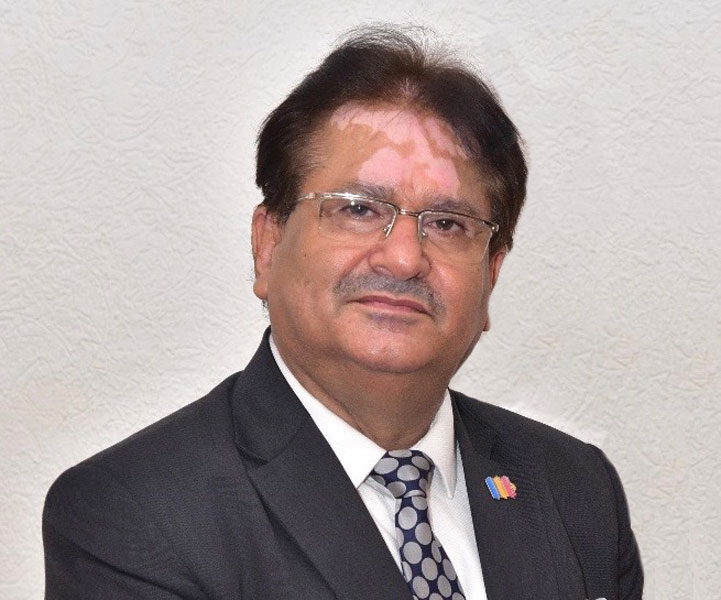
Education Administrator, RC Ferozepur Cantonment, RID 3090
As a retired college administrator, he is passionate about involving youth in Rotary. “I want to open as many Interact and Rotaract clubs as possible during my tenure,” says Vijaya Arora. He has chartered four Interact and six Rotaract clubs, and increased women’s membership from three per cent to eight per cent. Eighty per cent of the 200 new Rotarians inducted since July are below 40.
Despite the Covid lockdown and meetings being held over Zoom, “I am confident of improving the membership from 2,215 to 3,000 by the end of the year and 45 per cent will be below 40.”
Till September, his district has done Covid-relief projects worth ₹5 crore. Arora plans to raise $100,000 for TRF and has already received commitment worth $35,000 from the members.
He is taking up the Happy Schools project in a big way, having identified 25 government primary and high schools so far. Already 10–15 clubs have started executing water, sanitation and literacy projects in schools, he says.
Rotaractors are part of our District Avenue teams
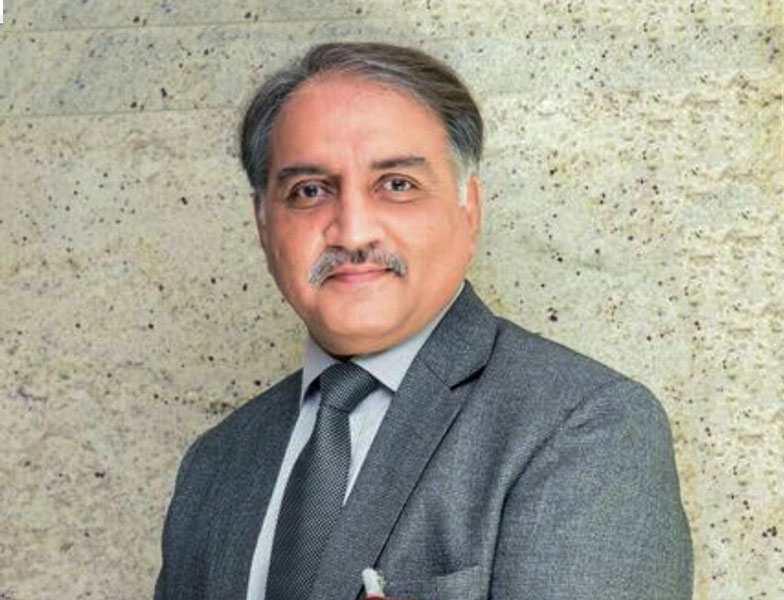
Packaging manufacturer, RC Bombay Pier, RID 3141
He has initiated a slew of mega projects to be implemented as the district’s signature projects. “Through Project Annapoorna we have given over 700,000 packed food to poor families. After coming to know that 70 tribal families in Palghar, a remote village, are eating grass, we rushed to them and provided monthly rations and food,” says Sunnil Mehra.
Under Project Poshak, 750 malnourished children in Adivasi villages are being provided protein-based food packets through the year and the Aashiyana Project will provide in the first phase pucca houses, each costing ₹250,000, to 5,000 out of 27,000 tribal families who have no roof over their head.
A novel initiative called Giver’s Gain enables Rotarians to encash their unused household items such as furniture, electronic durables, plastic and chemicals by delivering them to a company. “The amount thus collected will be given to TRF under the member’s account.” The district hosted a CSR webinar in which 5,000 companies had a peek into some Rotary projects.
Reaching out to rural areas, the district plans to construct 40 check dams in Palghar to benefit 25,000 families dependent on agriculture.
Six new Rotaract clubs were formed since July and Rotaractors were inducted into the District Avenue teams for project execution. At present, there are 111 Rotaract clubs and 4,800 Rotaractors in the district.
To create a bonding with Rotaractors, “we have started a three-month online course on entrepreneurship for them and 300 youth have enrolled in this programme.”
Hopeful of a 10 per cent growth in membership, Mehra says, “we have added 460 new members so far, increasing our membership to 5,300.” And women’s membership is expected to increase from 28–30 per cent to 40 per cent by the end of the year. Mehra has set a target of $3.5 million for TRF giving this year.
We want to be no 1 RI district in the world
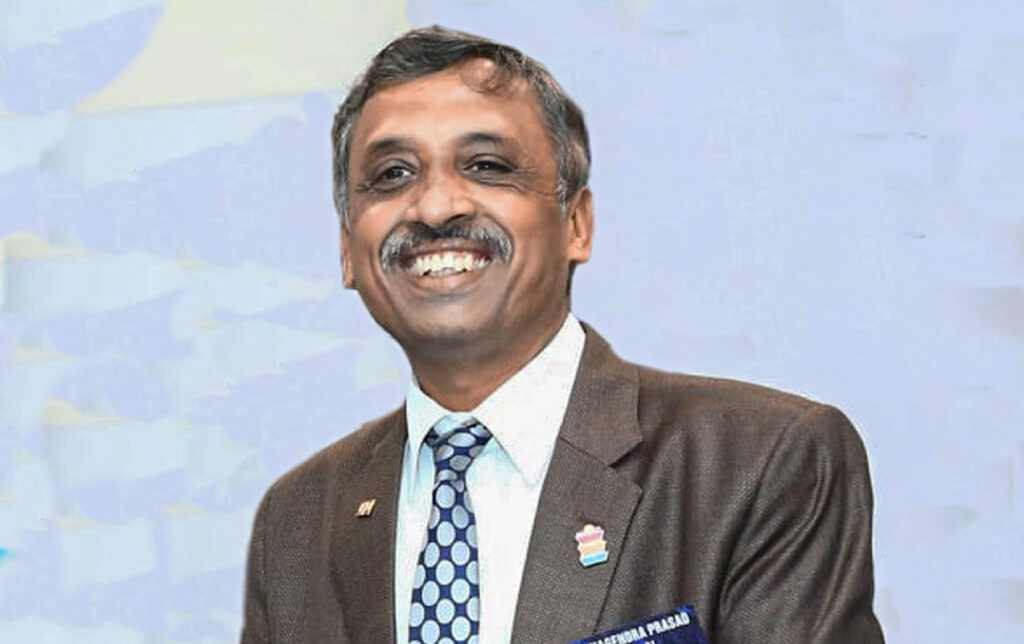
Realtor, RC Bangalore Peenya, RID 3190
All efforts are being taken to make the district no 1 in membership and TRF giving in the world, says Nagendra Prasad. He wants to add 2,500 new members and 25 new clubs this year. “We have so far added 1,100 new members, 10 new clubs and three satellite clubs.”
Tree plantation is an ongoing project since July and “we hope to surpass the last year’s figure of 28 lakh saplings this year,” he says. KSRTC has donated a bus for converting it into a special ambulance for performing Covid tests across the state. “We are in talks with KSRTC to purchase 10 more buses to operate mobile libraries and clinics in rural areas,” says Prasad.
A high-tech blood bank will be set-up at the BGS Hospital through a global grant worth ₹1.24 crore. The district in partnership with the Karnataka Small Scale Industries Association will be providing vocational training in diverse fields such as tailoring and machine tools to empower needy families. “We will enter into a similar agreement with Logu Udyog Bharathi to offer online skill development courses to jobless youth. This will be a free course for needy people,” he says.
The district has identified five prospective AKS members so far and “we have set a target of $5 million for TRF giving. Ravishankar Dakoju, who has donated ₹100 crore to TRF, is inspiring us to do more in Foundation giving.”






